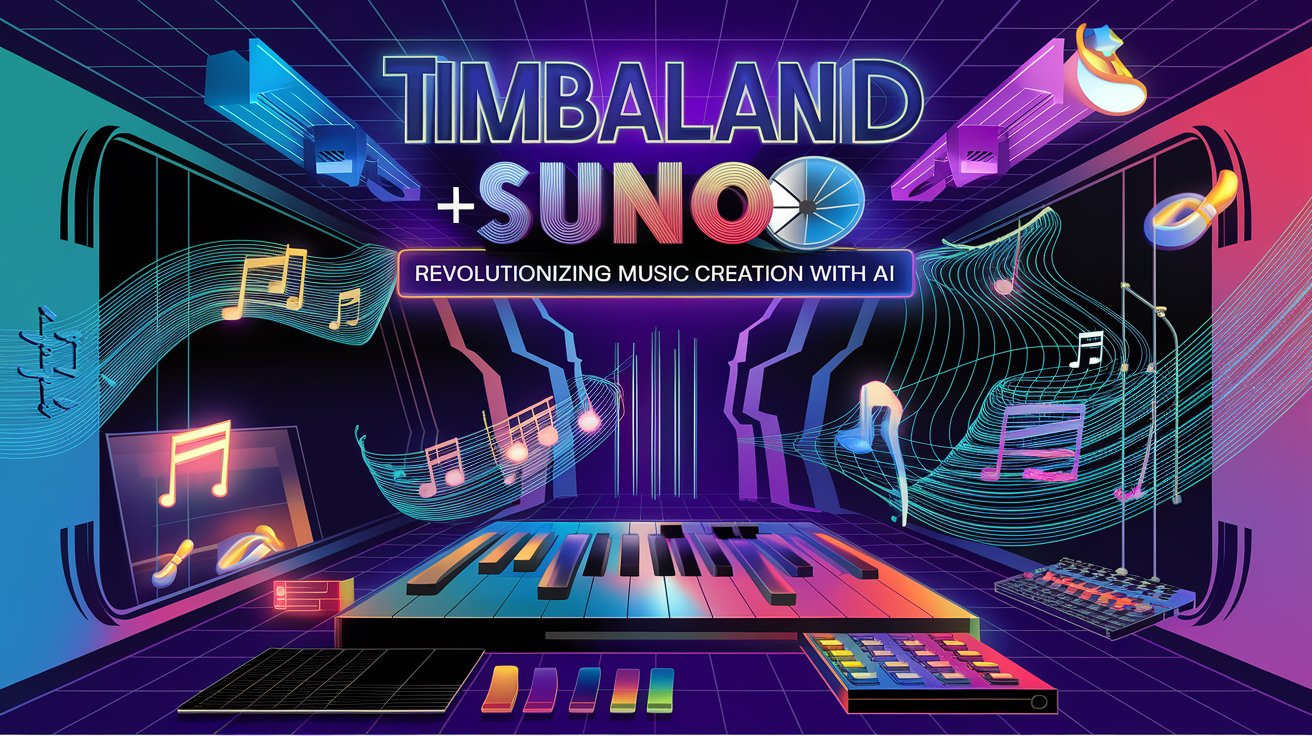Timbaland, the legendary Grammy-winning producer, has consistently pushed boundaries in the music industry. From crafting iconic hits like Justin Timberlake’s SexyBack to Aaliyah’s One in a Million, his innovative approach to production has made him one of the most influential figures in modern music. Now, Timbaland is embracing artificial intelligence (AI) as the next frontier in music creation through his partnership with Suno, an AI-powered music platform.
Who is Timbaland?
Born Timothy Mosley on March 10, 1971, in Norfolk, Virginia, Timbaland began his career under the mentorship of DeVante Swing and quickly became known for his unique production style. He gained fame for creating original beats and complex rhythms that transformed hip-hop and R&B. Over the years, he has worked with artists across genres—from Missy Elliott and Jay-Z to Madonna and Björk.
With four Grammy wins and dozens of nominations under his belt, Timbaland has proven his ability to adapt and innovate. His ventures include co-founding Beatclub, a platform supporting independent creators, and launching VERZUZ, a virtual music battle series with Swizz Beatz.
What is Suno?
Suno is an AI-driven music creation platform designed to empower musicians by offering tools that simplify and enhance the creative process. The platform enables users to generate new sounds, remix tracks, and refine their ideas using AI-powered features like audio extension and section replacement. Suno’s mission is to make professional-quality music production accessible to everyone—whether they are seasoned producers or hobbyists.
The Partnership Between Timbaland and Suno
Timbaland officially joined Suno as a strategic advisor in 2024 after months of experimenting with its tools. He spent over ten hours a day reworking beats from his extensive archive using descriptive prompts on the platform. This hands-on experience convinced him that AI could revolutionize music-making.
In collaboration with Suno’s team, Timbaland aims to create tools that cater to both emerging artists and established professionals. His vision is clear: AI should work for artists by enhancing their creativity rather than replacing traditional artistry.
The “Love Again” Remix Contest
To kick off this partnership, Timbaland launched the Love Again Remix Contest on Suno. Participants were invited to remix stems from his latest single, created with Alejandro. The contest offered over $100,000 in prizes, including cash awards and opportunities for winners’ remixes to be officially released alongside the original track.
Here’s how it worked:
- Contestants could use Suno’s features like “Covers” or “Extend” to transform Love Again into different musical styles.
- Timbaland personally judged submissions, selecting winners based on creativity and originality.
- The top two remixes were slated for release on major streaming platforms as part of his upcoming album.
This initiative not only showcased Suno’s capabilities but also provided aspiring artists with a chance to collaborate directly with one of music’s biggest names.
Why This Collaboration Matters
Timbaland’s partnership with Suno reflects a broader shift in the music industry toward integrating technology into creative processes. Platforms like Suno can democratize music production by removing barriers such as expensive studio equipment or advanced technical skills. Artists can now focus on their ideas while leveraging AI tools to bring them to life faster than ever before.
For Timbaland, this collaboration is about opening doors for future generations of creators. By combining his expertise with Suno’s technology, he aims to inspire artists worldwide to explore new possibilities in sound design and production.
Conclusion
Timbaland’s alliance with Suno marks an exciting chapter in the evolution of music creation. Together, they are setting new standards by blending artistry with technology. Whether you’re a bedroom producer or an industry veteran, this partnership offers tools that empower creativity at every level.
As AI continues reshaping industries globally, collaborations like this demonstrate how technology can complement human ingenuity rather than overshadow it—ensuring that the heart of music remains firmly rooted in artistic expression.



